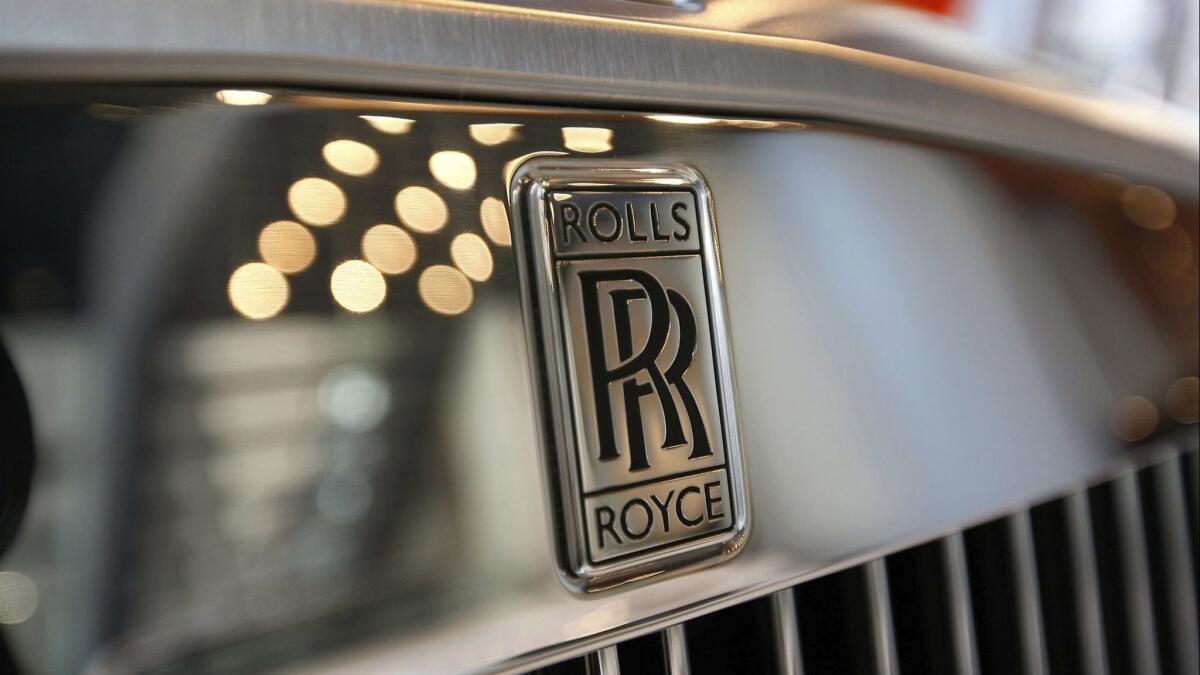An extra dose of testosterone increases men’s preference for high-status luxury goods, study says

An extra shot of testosterone, it seems, makes a man act like an animal.
You know the type: one of those male birds who unfurls some of his most spectacular feathers when the ladies are around, or the buck who uses his crown of antlers to advertise his virility. In short, an animal prone to making showy displays of his power, beauty or wealth to win mates, gain allies and intimidate competitors.
But for humans — American males, at least — new research suggests that this testosterone-driven display of prowess actually finds its expression in a preference for status goods.
Whether it’s in his choice of top-shelf alcohol at the club, the watch on his wrist, or the threads that clothe his back, a man under the influence of the male sex hormone is going to reach for the product that says to potential mates (and to competitors for those mates), “U can’t touch this.”
This pursuit of status in the choice of manufactured goods is called “positional consumption.” It’s been a hot topic among evolutionary psychologists, and now is finding its way into the study of marketing.
Researchers from the Wharton School of the University of Pennsylvania administered a supplemental dose of testosterone to a large group of men, then asked them to look at pictures and descriptions of five pairs of items — including watches, jeans and jackets — and choose which one they preferred.
The pairings were carefully composed to present the men with a choice between products that varied on three dimensions: status, power and quality. If the item was a watch, for instance, he’d be asked whether he preferred one touted as highly resilient and sporty (powerful) or one billed as luxurious and prestigious (high status). In judging a pair of jeans, he might be asked to choose between a pair that’s well-made and long-wearing (quality) and a pair described as a benchmark for fashionable style (status).
The study’s 243 subjects ranged in age from 18 to 55. In these years, testosterone levels vary widely from man to man. But they tend to wax and wane in predictable patterns that are not yet perturbed by advancing age.
Sure enough, when some of the men were issued a testosterone gel and asked to rub it all over their upper body, their testosterone levels rose. Men who were given a placebo gel experienced no notable change in their testosterone levels.
For those who got the testosterone, status consistently won out over power and quality. But when these men were faced with a choice between powerful and high-quality goods, they showed no clear preferences.
Meanwhile, men who got the placebo tended to choose the powerful and high-quality versions of the goods they saw over the high-status versions.
The authors are quick to caution that “status signals are not universal,” and that the experiment might have turned out differently if the men were not American. Indeed, some cultures actually “frown upon overt expression of material status,” they noted.
But not here. Overall, compared with men in the placebo group, the men who got testosterone expressed more positive attitudes toward goods described as “status-enhancing.”
The results were published this week in the journal Nature Communications.
The study’s authors suggested some potentially target-rich circumstances for goosing the sale of luxury items.
“Men experience situational elevation in [testosterone] during and following sporting events, in the presence of attractive mates, and following meaningful life events such as graduation and divorce,” they observed. “Our results suggest that in such contexts, male consumers might be more likely to engage in positional consumption, and might find status-related brand communications more appealing.”
Marketing professionals who pose attractive women on the hoods of expensive cars, who zero in on the watches worn by victorious yacht-racers, or who attach the name of a real-estate magnate to steaks, wine and ties have probably already intuited this. But now they have scientific evidence to back up their surmises.
At the same time, evolutionary anthropologists say the new findings offer more fundamental insights into the motivations that drive men in complex human societies.
Past research has not resolved the question of which comes first — the surge of testosterone or the male dominance behavior, said Arizona State University anthropologist Benjamin C. Trumble, who has studied the ebb and flow of testosterone in the Tsimané forager-farmers of lowland Bolivia.
This study, larger than most others in this field, helps clarify the role of testosterone as a driver of male dominance behavior and not just a response to it, said Trumble, who was not involved in the new research.
It also distills something important about human dominance behavior and translates it into a distinctly American context, said Christopher R. von Rueden of the University of Richmond’s Jepson School of Leadership Studies in Virginia.
Compared with to some nonhuman primates, “humans are such cooperators,” said Von Ruedon, an evolutionary anthropologist who was not involved in the study.
In less interdependent species, testosterone is clearly linked to the kind of aggressive behavior that could ensure a male mating rights, said Von Ruedon, who also has studied the Tsimané. But as humans evolved to depend on one another for safety and prosperity, a male’s appeal as a mate “actually rested on his ability to be of value to others.”
In its most evolved form, for instance, rich robber barons would shore up their leadership status through acts of philanthropy. (Does your town have a Carnegie library?) Indeed, research has shown patterns of enhanced generosity in men whose testosterone got an upward nudge.
By focusing on “conspicuous consumption as an avenue to status,” the new research shows what “value to others” means in a society where scarcity itself has become scarce, Von Ruedon said. These goods put others on notice that “you’re wealthy, and you must have some skills or some valuable something that’s allowed you to amass wealth,” he said. “It’s an advertisement that you’re of value as a mate or friend or leader.”
Trumble said he’s not surprised that marketers would use evolutionary anthropology to help them sell products. And if Wharton professors want to know how testosterone affects male consumers, that’s fine with him.
“I’m always on the side of knowing more about underlying preferences,” he said. “The more people who know about those, the better they can avoid falling into that marketing trap.”
MORE IN SCIENCE
The koalas are threatened. Can their genome help us save them?
With Very Large Telescope, astronomers spy a planet being born around a young star
Can humans reach even older age? We haven’t maxed out yet, some scientists say





